 01:00:00
01:00:00
The Great Melbourne Telescope
A joint project of the Royal Society and the British Association, the Great Melbourne Telescope was the result of both technical and organisational innovation in the design and manufacture of a large telescope. At the completion of its construction b....
More details | Watch now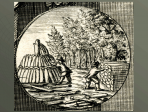 00:53:00
00:53:00
John Evelyn’s ‘Sylva’ and the origins of the modern sustainability discourse
The idea of sustainability has deep roots in practically all cultures of the world. The term itself, however, so familiar in today's global vocabulary, was shaped in the 17th century European discourse on timber shortage. Initiated by the newly-estab....
More details | Watch now 01:02:00
01:02:00
Winning and losing the fight against infectious diseases
Human infectious diseases will be eliminated and replaced by chronic ÒlifestyleÓ diseases as fertility falls, life expectancy increases, and populations grow older and wealthier. This is the standard story of the epidemiologic transition, but it is....
More details | Watch now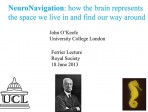 01:02:00
01:02:00
NeuroNavigation: how the brain represents the space we live in and finds our way around
Learning about new environments or locating ourselves in familiar environments are some of the most fundamental tasks that the brain performs. Information is not stored in response to biological needs such as hunger or thirst but on the basis of cogn....
More details | Watch now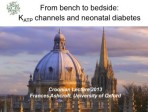 00:47:00
00:47:00
From bench to bedside: KATP channels and neonatal diabetes
Whether you eat a whole box of chocolates or fast for the day, the pancreatic beta-cells ensure that your blood glucose level remains relatively constant by regulating the release of insulin from the pancreatic beta-cells. Diabetes results when insul....
More details | Watch now 00:44:00
00:44:00
Defining nature’s limits: Prosecuting magic in sixteenth-century Italy
Magic and science have traditionally been considered to have little in common. Yet for many sixteenth-century intellectuals, including churchmen, practising magic was based upon highly sophisticated knowledge of the natural world. For ecclesiastical ....
More details | Watch now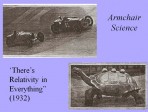 00:57:00
00:57:00
The popular reception of relativity in Britain
How did it feel to open a newspaper in November 1919 to be greeted by headlines about 'Light Caught Bending' and a 'Revolution in Space and Time'? Einstein's relativity reached a wide public audience in the context of social change. The theory's inte....
More details | Watch now 00:55:00
00:55:00
Iron from the sky: the potential influence of meteorites on ancient Egyptian culture.
Ancient Egyptian belief was frequently derived from observations of the natural world, where the gods were considered to control the forces of nature; and as a society, ancient Egyptians placed great value upon order and balance. So how would the app....
More details | Watch now 01:02:00
01:02:00
Developing new solar cells – cheaper, or more efficient?
Using solar cells to convert sunlight to electricity is an attractive way to reduce carbon emissions, but solar cells are still too expensive to be installed on the scale required. The next generation of solar cells aim to solve this problem using st....
More details | Watch now 00:57:00
00:57:00
Experimental misunderstandings: the precedent of Francis Bacon’s ‘Sylva Sylvarum’ and the beginnings of the Royal Society
Guido Giglioni is the Cassamarca Lecturer in Neo-Latin Culture and Intellectual History at the Warburg Institute, University of London. By writing a number of natural histories and above all the Sylva Sylvarum, Bacon set an important but difficult pr....
More details | Watch now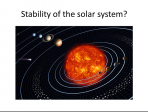 01:26:00
01:26:00
Curious maths: finding the solution
Unsolved problems in mathematics have intrigued us for centuries. It took over 350 years for anyone to provide a proof for Fermat's Last Theorem, considered by many as the most notorious problem in the history of mathematics, and no one has yet offer....
More details | Watch now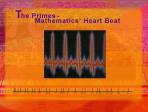 01:26:00
01:26:00
Curious maths: finding the solution
Unsolved problems in mathematics have intrigued us for centuries. It took over 350 years for anyone to provide a proof for FermatÕs Last Theorem, considered by many as the most notorious problem in the history of mathematics, and no one has yet offe....
More details | Watch now
